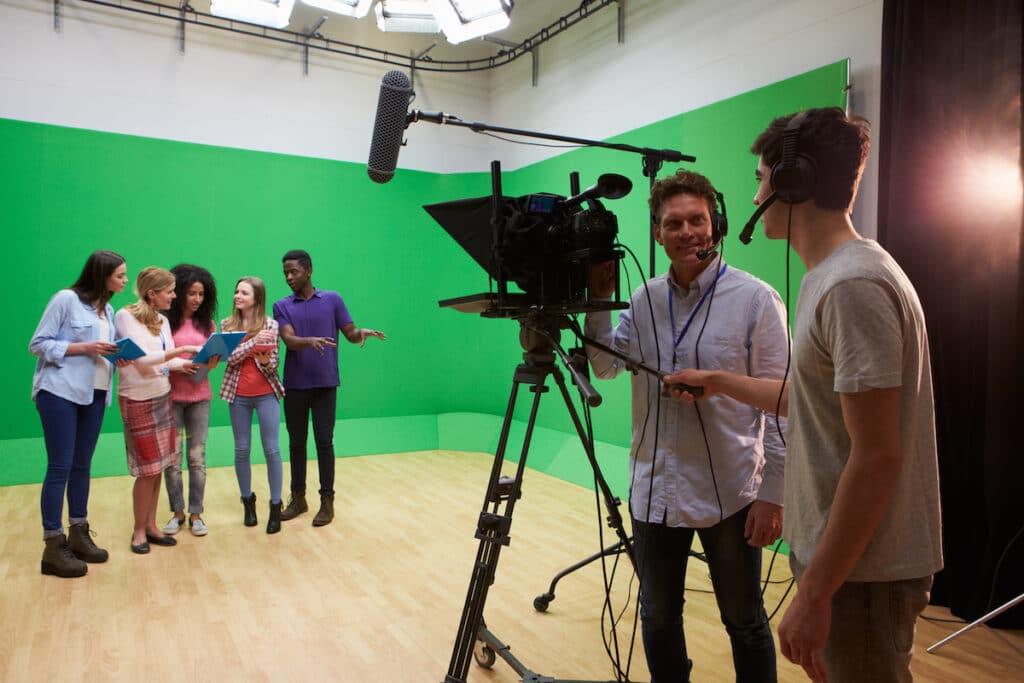Videography is a dynamic and rewarding field for those with a passion for capturing moments and stories through the lens of a camera. Whether you’re considering a career in videography or you’re just starting out, you likely have many questions. This article is here to help you navigate the world of videography, covering topics such as how to set your rates, the equipment you’ll need, and the various niches within videography.
Essential Equipment for Videographers:
The gear you use as a videographer is critical to producing high-quality work. While specific client requirements may vary, there are some essential pieces of equipment every videographer should have:
- Camera: Most clients today expect 4K video quality. Cameras from Sony, RED, Panasonic, and Canon are popular choices. Be sure to invest in a 4K camera that suits your needs.
- Tripod: A good-quality tripod is necessary for stable shots. Look for one that’s quick to set up and easy to maneuver.
- Batteries and Charger: Carry backup batteries and chargers to ensure you never run out of power during a shoot.
- Media Cards: Stock up on a sufficient number of media cards as you’ll need them, especially when recording long events.
- Sound Equipment: Sound is crucial in videography. Invest in equipment like a Zoom H6 audio recorder, wireless Lavalier microphones, and a shotgun microphone with a stand.
- Lighting: Depending on your projects, a camera-mounted LED light or a small LED interview kit may be necessary to handle low-light conditions.
How To Set Your Pricing As A Freelance Videographer
Setting your rates as a videographer is a crucial step in building a successful career. It’s not a one-size-fits-all process; instead, it’s influenced by several key considerations. Here’s a more in-depth look at the factors to ponder when determining your rates:
- Survival Rate: Your survival rate is the baseline for your pricing strategy. To calculate this, analyze your monthly expenses, including rent, utilities, insurance, equipment maintenance, and other living costs. Divide this total by 20, considering an average work month of 20 days. This formula provides your minimum daily rate, which should cover your essential expenses. Starting with this rate ensures you can sustain yourself while pursuing your videography career, especially in the initial stages when you might have a part-time job alongside your videography work.
- Market Rate: Researching the going rates in your local videography market is essential. Rates can vary significantly depending on your geographical location, your niche, and the demand for videography services. Your aim should be to stay competitive within your market. By understanding what other videographers charge, you can position yourself effectively. In highly competitive markets like Los Angeles or the Bay Area, daily rates might range from $750 to $850, while smaller markets may offer lower rates. Having a clear sense of your market’s rate range is advisable to avoid underpricing or overpricing your services.
- Value to the Client: Beyond your survival rate and market rates, it’s vital to consider the unique value you bring to each client. The significance of the event or project, as well as the specific needs and expectations of the client, play a pivotal role in setting your rate. Clients who require your videography services for a once-in-a-lifetime event, such as a wedding or a high-profile corporate launch, may be willing to invest more. Your ability to capture these moments effectively adds both emotional and practical value to your clients. Understanding this value and being able to articulate it can empower you to justify higher rates for premium services.
As you accumulate experience and enhance your skills, gradually increase your rates. Negotiation is a standard practice in the freelance videography industry. When new clients inquire about your rates, consider asking for a slightly higher figure than your existing clients. You may occasionally lose potential clients due to higher pricing, but this approach helps you gauge the market’s willingness to pay and refine your rates accordingly. Over time, you’ll find the sweet spot that balances your value, market competitiveness, and sustainable income.
Niche’s Matter To Your Career As A Videographer
Choosing the right videography niche is a pivotal decision in your journey as a videographer. It’s similar to finding your niche in any creative industry, a specialization that not only resonates with your passion but also aligns with your unique skills and interests. Each niche within videography offers distinct challenges and opportunities, and understanding where your heart lies can be a game-changer.
For instance, if you love sports, becoming a sports videographer might be your calling. Your expertise in capturing the dynamics of the game and understanding the rhythm of sporting events can set you apart. On the other hand, if you have a knack for telling love stories through your lens, the world of wedding videography could be where you shine. Weddings are momentous occasions, and clients often look for videographers who can transform these moments into unforgettable stories. Building an in-depth understanding of the nuances and expectations within your chosen niche is essential for long-term success.
While it’s valuable to be passionate about your chosen niche, it’s also important to consider its market demand and competition in your area. For instance, corporate videography is often a steady market with a demand for promotional videos and training content. On the other hand, the live event market may offer more flexibility and opportunities to build your portfolio while working part-time. Regardless of your choice, the key to success is to immerse yourself in your chosen niche, continuously develop your skills, and build a portfolio that showcases your expertise.
Common Niches
- Product Videography: In the age of e-commerce, product videography is in high demand. Businesses rely on engaging product videos to showcase their offerings. This niche involves creating visually appealing and informative videos that highlight the features and benefits of products, whether it’s a tech gadget, fashion item, or culinary tool. A well-crafted product video can significantly impact a consumer’s decision to make a purchase.
- Real Estate Videography: The real estate market increasingly utilizes video to showcase properties. Real estate videographers capture the essence of homes and commercial spaces through dynamic, immersive videos. Whether it’s a luxurious mansion or a cozy apartment, your role is to make the property shine. Using techniques like drone footage and virtual tours, you provide potential buyers with a vivid sense of the property’s layout and atmosphere.
- Commercial Videography: Commercial videography encompasses creating advertisements for businesses and brands. This involves crafting compelling narratives that resonate with a target audience and effectively convey a product or service’s value. You’ll work closely with marketing teams and agencies to bring creative concepts to life. Your work in this niche can range from television commercials to online ad campaigns, with a strong focus on storytelling and visual impact.
- Documentary Videography: Documentaries are a powerful medium for storytelling. In this niche, you delve into the world of non-fiction storytelling, capturing real-life events, people, and issues. Documentaries can cover a broad spectrum of topics, from social and environmental issues to personal profiles. The ability to research, interview, and creatively present facts and narratives is essential for success in this niche.
- Travel Videography: If you have a passion for exploring new places and cultures, travel videography could be a dream niche. Your camera becomes your passport, allowing you to capture the beauty and essence of different destinations. Travel videographers often work with tourism boards, travel companies, and influencers to create captivating videos that inspire wanderlust.
- Event Videography: This dynamic field covers a wide range of occasions, from corporate conferences and award ceremonies to concerts, festivals, and private parties. Event videographers capture the essence and excitement of these gatherings. To thrive in this market, developing strong relationships with event planners, organizers, and other professionals is essential. These connections can lead to a steady flow of projects and opportunities to showcase your expertise.
- Sports Videography: Sports videography is a thrilling niche with opportunities at various levels, from local little league games to major-league events. As a sports videographer, your role is to master the art of capturing fast-paced action, decisive moments, and the spirit of competition. Building a diverse portfolio by starting with smaller local events is a common path to advancement. Developing relationships with local sports organizations and attending workshops can help you gain the skills and experience needed to work on larger, high-profile games.
- Wedding Videography: The wedding videography market is a unique blend of artistry and high stakes. It involves capturing one of the most significant days in a couple’s life. Clients often expect comprehensive services, including shooting and editing. Wedding videographers must excel in handling high-pressure situations, ensuring no precious moment goes uncaptured. Building a solid portfolio through early projects, possibly working with wedding planners or as a second shooter, is crucial. Additionally, networking with event professionals and maintaining strong relationships within the wedding industry can lead to a steady stream of bookings and long-term success.
Embarking on a career in videography is an exciting journey. Understanding the specific needs of your chosen niche, investing in the right equipment, and setting appropriate rates are crucial steps to ensure your success in the industry. If you need support and guidance in developing your career as a freelance videographer we invite you to explore our Digital Filmmaking & Video Production program. We have helped thousands of creatives launch their career, with the F.I.R.S.T. Institute advantage.





